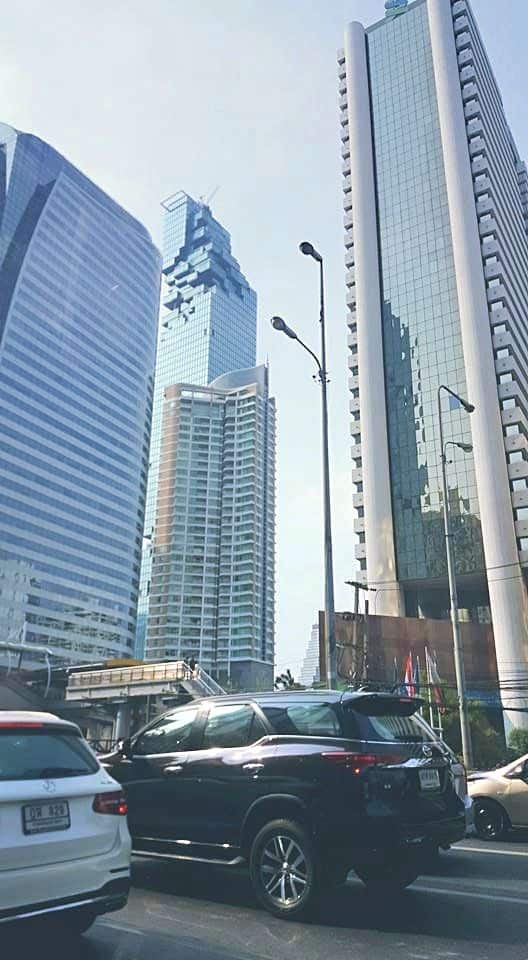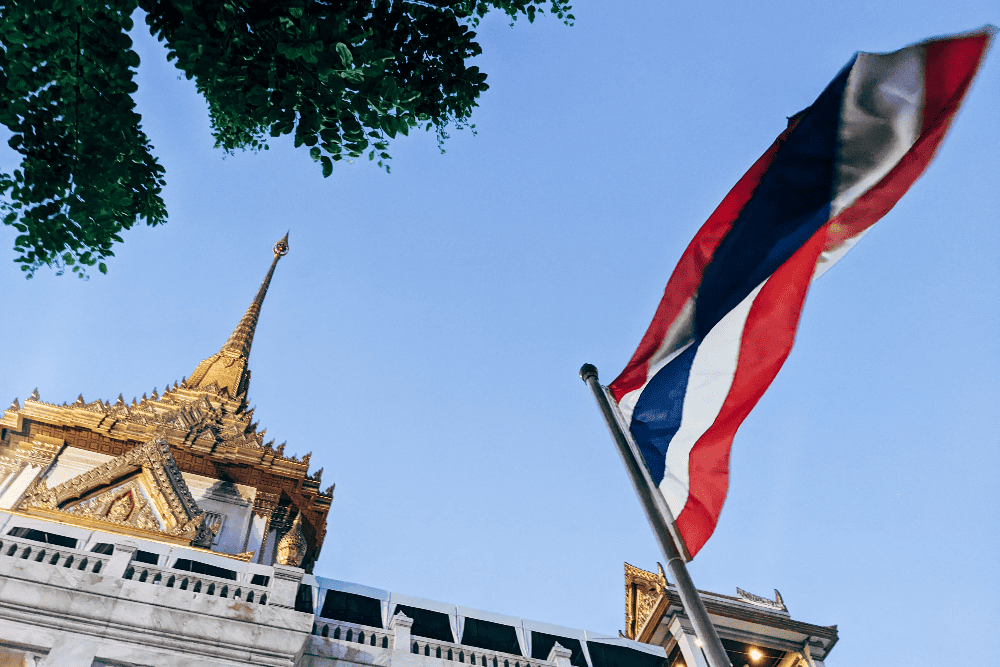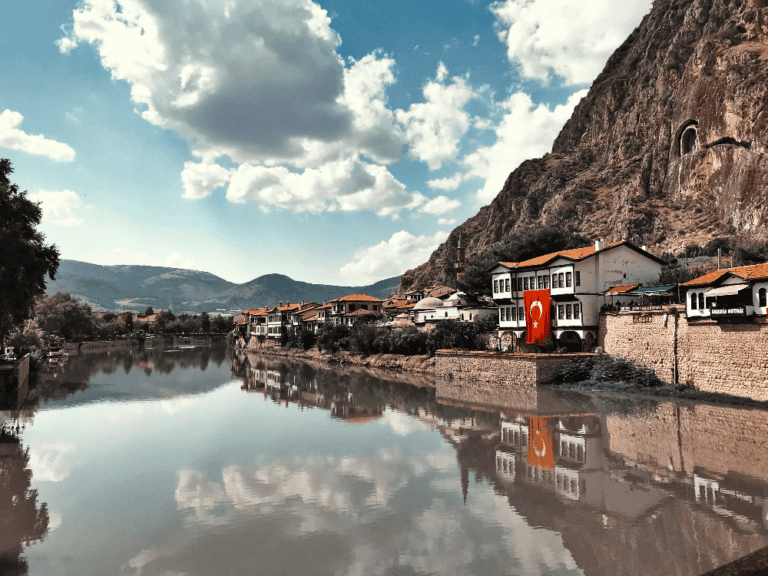How to Move to Thailand in 2024: A Comprehensive Guide for Digital Nomads, Investors, Entrepreneurs, And Retirees
Thailand, the “Land of Smiles,” has long captivated travelers with its vibrant culture, stunning beaches, delectable cuisine, and warm hospitality. In recent years, it has emerged as a haven for digital nomads, remote workers, investors, entrepreneurs, and retirees offering an attractive blend of affordability, convenience, connectivity, and a thriving business environment.
If you’re wondering how to move to Thailand and the processes involved, this comprehensive guide will take you through the step-by-step process of moving to Thailand in 2024, covering essential aspects such as visa requirements, required documents, accommodations, healthcare, language barriers, culture shock, and safety considerations.
Drawing from my experience as a frequent visitor to Thailand, I’ll also provide you with valuable insights and keep you abreast of the latest special programs and visa options that allow for an extended stay in this captivating country.
So, let’s dive in and unveil the magic that awaits you in Thailand.
What Is Thailand Known For?
Thailand, officially known as the Kingdom of Thailand, is a captivating country nestled in the heart of Southeast Asia.
Bordering Myanmar to the west, Laos to the north, Cambodia to the east, and the Gulf of Thailand and the Andaman Sea to the south, it offers a diverse landscape that ranges from stunning beaches and lush rainforests to ancient temples steeped in history. Whether you’re exploring bustling cities or embarking on an adventurous trek through its national parks, Thailand’s diverse landscape has something for everyone.
But it’s not just the natural beauty that draws visitors.
Thailand is also renowned for its friendly people, vibrant festivals, and mouthwatering cuisine. Some of my personal favorites are Pad Thai (Stir-Fried Noodles), Khao Pad (Thai Fried Rice) and Pad Kra Pao Moo (Stir-Fried Thai Basil & Pork).
Why Do People Go to Thailand for Work, Business, Extended Stay or Permanent Residency?
While Thailand’s reputation is built primarily upon its breathtaking beaches, lush rainforests, ancient temples, and the warm hospitality that embraces all who venture within its vibrant embrace, its allure extends far beyond its postcard-perfect scenery.
Here are some compelling reasons why people choose Thailand not only for unforgettable vacations but also for work, investment, extended stays, or even to establish a permanent residence:
1. Affordable Cost of Living
Thailand’s cost of living is relatively low compared to other developed countries, making it an attractive option for those seeking a financially comfortable lifestyle.
If you’re intrigued by the idea of living affordably in Thailand, be sure to check out my article “5 Best Reasons To Move To Thailand If You’re A Crypto Enthusiast” for more insights on the low cost of living in this vibrant country.
2. Thriving Business Environment and Investment Opportunities
Thailand has emerged as a hub for business and investment in Southeast Asia. With its strategic location, robust infrastructure, and government incentives, it attracts entrepreneurs, startups, and multinational corporations. The country offers a welcoming atmosphere for businesses across various sectors, making it an ideal destination for those looking to expand their ventures or tap into new markets.
3. Favorable Government Policies
Thailand’s welcoming environment extends to foreign investors. The government has implemented a series of policies to attract foreign investment, and the country boasts a robust economy with a growing middle class.
What Government Policies in Thailand Support Digital Nomads, Investors, and Entrepreneurs?
Thailand has emerged as a hub for foreign investment and entrepreneurial ventures, offering a dynamic business environment and a range of government initiatives that incentivize overseas participation.
The country’s welcoming stance towards foreign investors is evident in its diverse array of policies designed to foster economic growth and innovation, which includes:
1. Attractive Tax Incentives for Foreign Investors
- Corporate Income Tax (CIT) Exemption: Foreign companies investing in designated sectors, such as manufacturing, tourism, and infrastructure, are eligible for a CIT exemption for up to eight years.
- Tax Incentives for Research and Development (R&D): Companies engaged in R&D activities can enjoy a 50% deduction on CIT for R&D expenses.
- Double Taxation Treaties (DTTs): Thailand has signed DTTs with over 70 countries, reducing or eliminating double taxation on income earned in both jurisdictions.
2. Programs That Foster A Vibrant Entrepreneurial Ecosystem
Thailand’s entrepreneurial ecosystem is flourishing, supported by government initiatives and a growing network of incubators, accelerators, and co-working spaces. The government has implemented programs to:
- Provide Access to Capital: Government-backed funds and venture capital firms invest in promising startups and entrepreneurial ventures.
- Foster Skills Development: Government programs provide training and mentorship opportunities for aspiring entrepreneurs.
- Promote Innovation and Technology: The government supports initiatives to foster innovation and technology adoption among startups.
3. Policies To Attract Digital Nomads
Thailand has become a haven for digital nomads, offering a blend of affordability, connectivity, and a vibrant lifestyle. The government has introduced policies to attract digital nomads, including:
- Enhanced Visa Options: Long-term visas and digital nomad visas cater to the needs of remote workers seeking extended stays in Thailand.
- Digital Nomad Hubs: Coworking spaces and co-living communities provide digital nomads with a supportive environment to work and connect.
- Tax Exemptions for Digital Nomads: Digital nomads may be eligible for tax exemptions on income earned overseas.
For more comprehensive information on Thailand’s investment policies, entrepreneurial ecosystem, and digital nomad initiatives, you can visit the following government websites:
- Thailand Board of Investment
- Thailand Investment Promotion Office
- Thailand Ministry of Finance
- Thailand Digital Economy Development Agency (depa)

How Do I Move to Thailand as a Digital Nomad, Remote Worker, Investor, Entrepreneur Or Retiree?
Planning to relocate to Thailand can be exciting because the country offers a variety of visa options that allow an extended stay and potential advantages. On the other hand, however, due to the extensive selection of visa options, the process can be overwhelming and stressful.
To avoid this confusion and stress, one should carefully follow the sequence of processes below
1. Determine Your Purpose in Thailand: Digital Nomad, Remote Worker, Investor, Entrepreneur, or Retiree?
When considering a move to Thailand, it’s essential to first define your relocation plan. Will you simply visit for a short period, or are you looking to fully relocate as a digital nomad, remote worker, investor, entrepreneur, or retiree?
Understanding your purpose for relocating will help you navigate the various programs and visa options available, ensuring a smooth and tailored experience that suits your specific needs. So take a moment to clarify your intentions and set the foundation for your exciting journey ahead.
2. Understand All of the Visa Options and Their Requirements
Now that you’ve determined your relocation plan, you can now start exploring the special programs and visa options that allow an extended stay in Thailand.
Long Term Residence (LTR) Visa
The LTR visa unlocks extended residency for four distinct groups of foreigners:
- Wealthy global citizens: Those with total assets of at least US$1 million and a personal income of at least US$80,000 per year for the past two years, who invest a minimum of US$500,000 in Thailand.
- Foreign retirees (wealthy pensioners): Individuals with a personal income of at least US$80,000 per year.
- Work-from-Thailand professionals: Individuals with a personal income of at least US$80,000 per year for the past two years, a minimum of five years of work experience, and currently employed in a legally registered company generating income of at least US$150 million in the past three years.
- Highly skilled professionals: Individuals with a personal income of at least US$80,000 per year for the past two years, expertise in the target industry, and a minimum of five years of work experience.
The LTR visa offers numerous benefits, including a 10-year validity (extendable), annual reporting to immigration instead of every 90 days, expedited service at international airports in Thailand, a multiple re-entry permit, permission to work in Thailand (digital work permit), a reduced personal income tax rate of 17% for highly skilled professionals, and exemption from the requirement of four Thai employees per foreign employee.
Additionally, the spouse and children under 20 years old of an LTR visa holder are eligible, with up to four dependents per visa holder.
For more information or to apply for the LTR visa, click here.
SMART visa
The SMART Visa is available for foreign experts, executives, entrepreneurs, and investors who are interested in working or investing in Thailand’s “13 S-Curve industries” or targeted sectors. These industries encompass a wide range of fields, including:
- Agriculture & biotechnologies
- Automation & robotics
- Aviation & logistics
- Biofuels & biochemicals
- Digital technologies
- Environmental management & renewable energy
- Medical and wellness tourism
- Next generation automotive
Holders of the SMART Visa enjoy a generous maximum stay of up to 4 years, eliminating the need for a separate work permit. They also benefit from additional privileges.
For more information or to apply for the SMART Visa, click here.
Thailand Elite
Thailand Elite, launched in July 2003, is the first program in Asia that allows you to obtain residency through investment. With more than 20,000 members from 50 countries, joining Thailand Elite gives you a special VIP pass to experience Thailand.
As a member of Thailand Elite, you gain access to a range of exclusive benefits including a five-year multiple-entry visa, round-the-clock concierge services, and more. Take a look at our membership programs to find out all the privileges available.
The operator of the Thailand Elite Card is now recognized as a state-owned enterprise within the Tourism Authority of Thailand (TAT), which is the sole owner of the program.
For more information or to apply for Thailand Elite, click here.
Flexible Plus Program
The Flexible Plus Program offers a unique opportunity for foreigners seeking investment opportunities and exclusive privileges to work in Thailand.
Supervised and operated by Thailand Privilege Card Co. Ltd., a company under the guidance of the Tourism Authority of Thailand (TAT), the FlexiPlus Program aims to provide special membership benefits and services that cater to the needs of foreigners residing or visiting Thailand.
Membership in the Flexible Plus Program is open to Thailand Privilege Card members, granting them access to a range of exclusive services and benefits based on their card type:
- Elite Ultimate Privilege (EUP)
- Elite Superiority Extension (ESE)
- Elite Privilege Access (EPA)
Furthermore, the program extends special privileges to the legal spouses and children under 20 years of age who are dependents of the member. Each member can include a maximum of 3 dependents. These dependents have the option to request a change in visa type from the Privilege Entry Visa (PE) to a Non-Immigrant Visa, valid for five years, and enjoy similar benefits to the primary member.
For more information or to apply for the Flexible Plus Program, you may click here or here.
Having Trouble Deciding Which Visa Option to Choose?
If you’re still uncertain about which visa option is best for your relocation plan to Thailand, I recommend visiting the official website of the Ministry of Foreign Affairs of the Kingdom of Thailand.
You can also explore other resources like the official websites of the Immigration Bureau of Thailand and Board of Investment of Thailand. These websites offer detailed information on visa types, eligibility requirements, and application procedures, helping you make an informed decision.
How To Move To Thailand? (Final Thoughts)
In recent years, the Tourism Authority of Thailand (TAT) has aptly used the slogan “Amazing Thailand, Amazing New Chapters” for its tourism campaign. For those who have made Thailand their home or are frequent visitors like me, this resonates deeply.
Thailand truly is an amazing country, captivating with its warm-hearted people, delectable cuisine, and awe-inspiring natural wonders. It’s no wonder why Thailand easily finds its place on countless top 10 lists of the world’s most beautiful destinations.
What’s more, this vibrant nation offers an array of unique experiences that cater to both adventure seekers and those seeking relaxation.
Martial arts enthusiasts can train at renowned Muay Thai gyms. Dive enthusiasts can explore the mesmerizing underwater world of the Andaman Sea and Gulf of Thailand. Seekers of relaxation can indulge in rejuvenating Thai massages or discover ancient temple ruins in Ayutthaya.

Beyond its beauty, Thailand’s favorable policies towards professionals and investors, combined with a relatively low cost of living, make it an attractive option for starting anew. However, as with any major life decision, careful research and preparation are crucial.
Here are a few more recommendations to ensure a smooth transition to living in Thailand:
- Register for Healthcare: Thailand boasts a well-developed healthcare system. Digital nomads, investors, and entrepreneurs should consider enrolling in a health insurance plan suitable to their needs.
- Establish a Bank Account: Opening a bank account in Thailand is essential for financial management. Be prepared to provide necessary documents such as a passport, visa, and proof of address.
- Embrace the Local Culture: Thailand’s rich traditions and customs are an integral part of its charm. Show respect for local customs and immerse yourself in the cultural tapestry.
- Learn Basic Thai Phrases: While English is spoken in many tourist areas, learning basic Thai phrases enhances your interactions and demonstrates respect for the local culture. Consider language classes or language-learning apps to improve your skills.
- Understand Thailand’s “Country Risk”: Thailand enjoys relative political stability, but staying informed about current events and avoiding sensitive political discussions is advisable.
Moving to Thailand in 2024 presents an exciting opportunity for digital nomads, investors, business owners, and long-term residents. By following these steps and embracing the Thai way of life, you can confidently navigate your transition and find your amazing new chapter in the “Land of Smiles”.
So, good luck, and welcome to your new adventure!
Disclaimer: The information and opinions expressed in this blog post are for informational purposes only and are not intended to be construed as professional advice. Please consult with a qualified professional before making any financial decisions, traveling, or purchasing a product or service. This information is also based on personal experiences and/or research at the time of writing, and new information and updates may be available on the topic being discussed. Please conduct further research before making any decisions.













